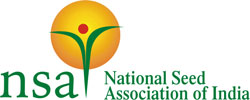If sowing is delayed in the Zaid season or farmers miss this window because of late delivery of seeds, or no seeds at all, we are possibly looking at a famine-like situation emerging and also extreme feed shortages coupled with food price inflations later this year
Humanity is besieged by the deadly Severe Acute Respiratory Syndrome Coronavirus 2 (SARS-CoV-2) at the moment. However, more than the virus, its manifestation has gained notoriety in the world. As economies plummet, fear reigns our minds, streets and homes. Sneezing and coughing have become a reprehensible act in these times. The Indian Government, like others around the world, and the World Health Organisation (WHO) are trying very hard to contain this global pandemic. But the threat surrounds us. A major world power like China has fallen prey to this disease. Iran, Italy and now the US are being ravaged by it and it is only a matter of weeks, if not days, before it hits the South Asian Association for Regional Cooperation (SAARC) nations and India, with its full might. As of now we have have 694 confirmed cases and 14 deaths in the country but this number is going up daily. As a safety measure, the Union Government has announced a 21-day lockdown across the country. It is a commendable step to curb the spread of the virus.
But ahead of the curve, black markets were already trading new commodities — masks, soaps, disinfectants and so on. People continue to hoard supplies. Very soon black markets will load up on essential medicines, foods and so on and as the desperation level and death toll rise, the agrarian sector and seeds will be devoured by the Coronavirus mayhem, too.
Farming is the backbone of our economy and most of our agriculture today depends on quality seeds and the organised seed sector. Our food production is also dependent on availability of human resources or farm labour and free movement of agricultural products — including seeds, fertilisers and so on. Both are restricted at this time. The US has shut its borders followed by the European Union (EU) and the world has cancelled visas and restricted the movement of people.
Even when the lockdown in India is lifted, the current environment of fear can only herald decreased availability of farm hands in the near future. There will be a rise in farm wages for this season and we may see the cost of production of foods rising. The threat is even greater in the poultry sector, as prices of chicken in Delhi have nosedived. People are falsely conjoining avian flu with COVID-19 and this is leading to greater losses in the poultry sector. Even before the 21-day curfew began, the workers were reluctant to work on poultry farms due to the rumours.
The global seed sector is deeply dependent on a global supply chain of production regions and no one country is a seed sovereign by itself. The freezing of ports and seeds shipments will derail agricultural productivity later this year. Small and medium seed traders and small seed companies may also be at risk, as they don’t store vast stocks of seeds. They rely on the international and domestic shipments before each season. A disruption will be detrimental to their business.
World over, March and April are a very important time for planting spring crops such as maize, sunflower, soybean, canola, spring wheat and barley, open field vegetables and so on, north of the Equator and autumn crops to the south. In India too, we will see the sowing of Zaid season crops soon. If sowing is delayed in the Zaid season or farmers miss this window because of late delivery or seeds or no seeds at all, we are possibly looking at a famine-like situation emerging and also extreme feed shortages coupled with food price inflations later this year.
The International Seed Federation (ISF) has sought to assuage fears citing the European Food Safety Authority (EFSA), Center for Disease Control and Prevention (CDC) and the Bundesinstitut für Risikobewertung (BfR) statement: “There is currently no evidence that food, including seed, is a likely source or route of transmission of the virus. Transmission via surfaces, which have recently been contaminated with the virus is, nonetheless, possible through smear infections. However, this is only likely to occur during a short period after contamination, due to the relatively low stability of Coronaviruses in the environment.” What this means is that there is no evidence yet and seeds may not be a gateway.
These are tough times and call for courage and truth. We need to make informed and scientific evidence-based decisions so that COVID-19 doesn’t evolve into another monster which threatens not just our health but also our agriculture. The Indian Government and other Governments of the world should not impose any restrictions on agrarian products, including seeds. Seed companies and exporters should take responsibility for the health and safety of workers involved in the shipments. Port authorities have strenuous months ahead due to the massive work of screening shipments and people and they should be aided in this. The virus spreads from person to person, so the latest WHO directives should be broadcast and people and workers need to be made aware of them. Shipments of seeds anyways have a very low risk of spreading viruses and hence should not be stopped or delayed. The world must come together in this time of crisis. We need to become conscious and alert as this pandemic affects each one of us. We have to fight not only the Coronavirus but fear itself.
Article Source: https://www.dailypioneer.com/2020/columnists/covid-19-will-hit-the-farm-sector.html

